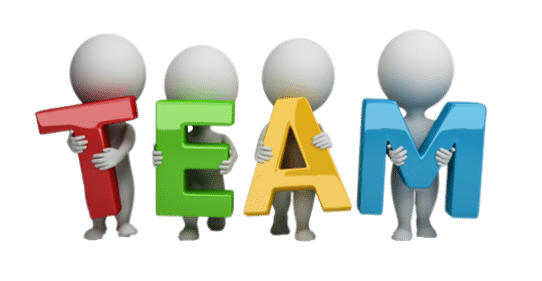If you're a participant in transformative change, or plan to become one, hopefully you understand that your participation plays a key part in a much larger effort.
Think of transformative change like a professional sport - a group (team) acts together to achieve some objective (a win). Each player must play their position, and must play it well, in order to achieve the objective. However, rather than players in positions, this work requires participants in transformation roles.
And a team likely has a coach. For individuals seeking to enter the game, upgrade their value, or to play at a higher level, the Iterative Transformation Model can be that coach.
Introduction
Some roles where the ITM can provide value to the individual, their team, their organization, or their customer, include:
- Transformation Management Office (TMO)
- Project Management Office (PMO)
- Solution Architect
- Solution Manager
- Epic / Business / Process Owner
- Solution Owner
- Scrum Master
- Business / Functional Analyst
- Application / Technology Analyst
- Test / Quality Analyst
- Release Manager
- DevOps
This page describes how the ITM can benefit individuals, offering reasons for Individual Subscriptions.
For a comparable summary for a group of consumers within an organization see Business. Alternatively, if your organization is a Solution Implementer / Integrator, or you are a Consultant or Independent Contractor, then refer to Implementers.
The Case for Individual Investments
Sometimes companies take the initiative to train their employees, and other participants, on how transformative solution delivery should be done within their organization. Other times, individuals are left to fend for themselves. That is, to research the Internet, take courses, or otherwise receive such education. On one hand, it's fortunate that there are many sources from which such information can be drawn. On the other, their are few standards with which to provide common definition. Further, in addition to searching on (or off) line, there are also plenty of people who bring their own, prior, experiences and deliverables to the table.
However, there is one hugh problem with these types of ad hoc guidance. That is, they all face a challenge aligning what each source infers, with topics that source is less explicit about. For example, someone who brings the perspective of Stories & Sprints, may not understand what must happen at higher levels, to enable broader solution definition, or portfolio management. Similarly, someone trained in Agile for custom software development may not understand the adjustments required to deliver COTS, or SaaS, packaged solutions. Furthermore, these varied sources lack a consistency across them - in terminology, organization, assumptions, roles & responsibiliites, etc. Alignement and consistency are constant challenges to overcome.
The Iterative Transformation Model provides one of few examples of a full-fledged source, which both aligns participants from executive to analyst, and provides consistency within and across solutions. By starting with a "Big Picture", more holistic approach, the Model helps to ensure that everyone fulfilling a transformation role is working towards the same, comprehensive objectives. Even better, the knowledge capital, templates, and actions described by the ITM can be useful, whether or not the Model is being used.
About the Model
If you are unfamiliar with the ITM, it may be helpful to review About the Iterative Transformation Model before reviewing the rest of this page. Then, consider how the ITM can help you, or your team, improve productivity, and add value, within your organization.
Personal Development
Whether new to a role or in it for some time, you can gain a fresh perspective from the knowledge and experience of others.
Room to improve in your Current Role?
Undoubtedly, a variety of people are needed to achieve successful iterative transformation projects. Some have years of experience, others may be first time participants. Conversly, many who stay involved over multiple initiatives often find themselves taking on new roles, and increased responsibilities.
Not Right & Wrong; Rather Better & Worse
One thing that can be said is that there is no one right way to fulfill a role. There are better and worse; but not right and wrong. Of course, becomming better involves gaining experience, learning what to do and, importantly, what not to do. Fortunately, some participants can learn from a qualified predecessor, or peer. Likewise, others may receive specific training. Nonetheless, all too often individuals are expected to fend for themselves. That is, they never receive guidance, or coaching, as to what makes someone better at fulfulling their role.
The ITM seeks to provide sound coaching and guidance over a variety of roles. Importantly, the Model embeds top-to-bottom alignment, to ensure all participants, from executives to analysts, are rowing in the same directions. Also, the Model strives for end-to-end consistency, to ensure that role to role, function to function, and across a portfolio of solutions, participants know what to expect, and what is expected of them.
Even so, transformation roles described by the ITM are pretty much industry norms. In general, they may offer a little more, or less, specificity than other guides. In part, that relates to the alignment and consistency factors, guiding each participant to stay in their lane. Nevertheless, the guidance provided per role is suitable whether working a project not othrewise using the Model, working a one-off implementation, or working within an organization that takes a broader, more holistic view of transformation.
Being an Effective Team Player
Without a doubt, iterative transformations can be exciting and rewarding initiatives. Nevertheless, at their core they are team events. Build up your game and become a star player in your position, and on your team. All things considered, doing so adds to both the satisfaction, and rewards, available.
The ITM includes a variety of Sections, and groups of Sections, which are enabled by certain role. For a summary of which content may apply to your role(s), take a quick look at For Roles and Teams, as well to the Delivery RACI. Find the role(s) of interest to you. Then, see what ITM content is available to help you succeed in fulfilling the role effectively and efficiently.

Team Improvement
Real value, and real rewards, come from what Teams are able to deliver for their customers.
Improve your Team's Performance

Certainly, an upside of iterative delivery is working closely with a talented group of individuals, all working together to achieve common goals. Conversely, a downside is when one or more of those individuals is playing a differnt tune.
A New Mind Set
Indeed, it can be difficult to get everyone on a Team working together. For example, some will bring different experieces of what this role should do, and what that role should not do. For many, they've just never worked in a structure that is expected to be dynamic, flexible and self-organizing. They're used to having a narrowly defined job, and being given direction on what to do.
Iterative delivery Teams work differently. To illustrate, each Team is expected to become an independent entity that can define, design, build, test and deliver some, or all, of a given Solution. In most cases, that requires a level of skill and knowledge that a single individual rarely brings to the table. Hence, the reason for transformation roles and Teams.
The ITM provides guidance on how to organize and divide-up a Team's work into segements which have clear ownership, clear accountability, and clear hand-offs, in responsibility.
Learn from Others
Successful Teams build the capabilities needed to deliver effective Solution components over the long-term, on an ongoing basis. With this in mind, help make your Team more efficient, and your worklife more enjoyable, by learning to work smarter, together. Yes, you need to figure out how to do this. No, you don't need to start with nothing. Rather, leverage the knowledge and experience of those who have been down this path before.
Take a look at the overview foe each Section within the ITM. For the Section(s) which seem appropriate for your Team's needs, preview the Parts within the relevant section(s). There you will find the content which can help your Team, and your project, make the adjustments necessary to improve productivity, and delivery improved value to your customers.
Career Growth
If you're looking to get into transformative delivery, or aspire to grow professionally, leverage external experience & knowledge.
Prepare for your next Opportunity
No one starts out knowing all the answers. And if you're good, you'll recognize that you never will. However, that doesn't mean you can't get many of the answers from those who have already "been there, done that".
Future Roles
For some, the next opportunity might be a promotion, or expanding their experience by taking on new, more rewarding roles. For others, the next opportunity might be to get involved with their first ever transformation initiative. In both cases, having access to knowledge, tools and templates can go a long way to both preparing you for a transformation role, and making you look good once you're there.
The ITM covers a breadth of subjects, all related to iterative transformation, and the implementation of packaged software products. For most, it describes how the subject fits into the "Bigger Picture". The Model defines processes which enable the given subject. Further, it offers tools and/or templates to help execute the subject.
So, whether moving into a Team role, being asked to fulfill a business role, or stepping up into broader management and leadership roles, the ITM can help you prepare for your next opportunity. Review the Section(s) which are relevant to the role(s) for which you wish to prepare. As you'll quickly find out, any Section of iterest will relate to other Sections. Understanding those relationships, ideally from both sides, provides you with all the preparation you'll need to be successful in your next role.

See options for accessing ITM content, or look into available subscriptions
